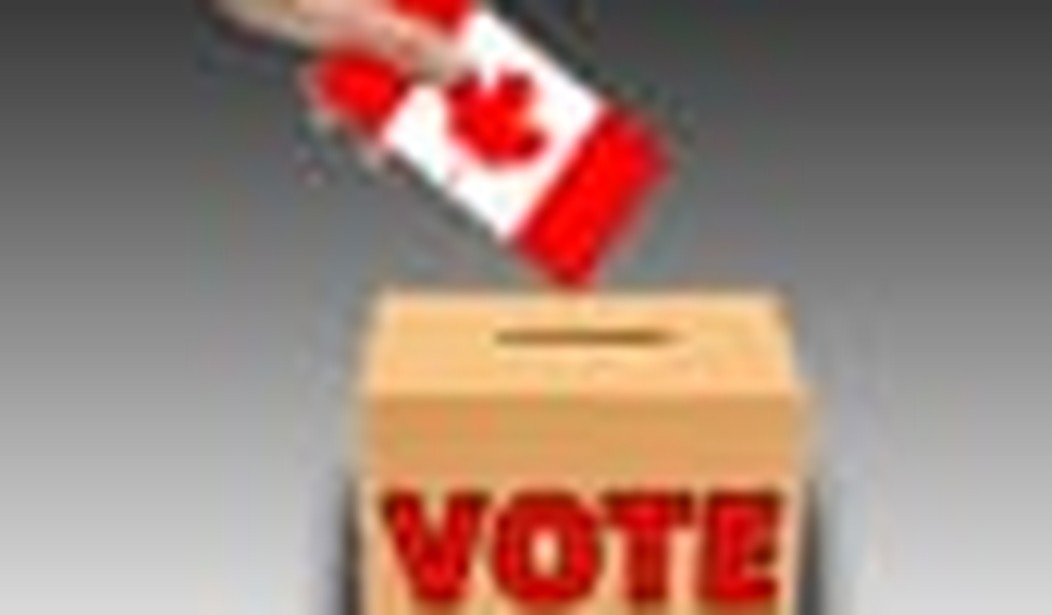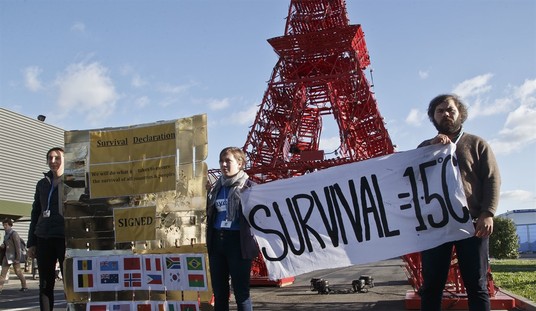Like every other nation in the world, Canada has its delicate sufficiency of problems. It suffers from a growing Muslim demographic and the cultural tensions this brings in its wake; is home to a potent eco-constituency that has bought into the Global Warming canard; shelters a plethora of misnamed Human Rights Commissions that are nothing more than kangaroo courts designed to stifle honest debate on the grounds that such may cause offense to “vulnerable” (or alternatively, “protected”) communities or individuals; harbors a persistent secessionary movement in the province of Quebec; boasts a Supreme Court filled to the brim with superannuated, politically correct apparatchiks who have no compunction about unanimously legislating against both the theory and practice of free speech; tolerates an aboriginal racket that exploits the country’s bad conscience and whose band chiefs prosper obscenely at taxpayers’ expense, thanks to an obsolete Indian Act; subsidizes a left-leaning national broadcaster, the CBC, that can always be counted on to slant the news in favor of a “progressivist” agenda; and, most alarmingly, comprises a vacillating, increasingly miseducated and credulous electorate that tends not to know where its best interests lie.
And, like any other country, Canada needs sane, responsible and principled governance, a “quantity” largely absent from this world. Although blessed by the advantages that accrue to a functioning electoral system, a comparatively virile economy, an abundance of natural resources, a decent and generous heritage culture, and friendly relations with its powerful southern neighbor in the modern era (post 1812-1814), Canadians should take a hard look at the current political map if they wish to avoid the worst of the economic and social stresses afflicting the U.S. and much of Europe.
Of Canada’s five national parties, two are presently insignificant — the Green Party with one parliamentary seat and the separatist Bloc Québécois with five (down from 47 at Parliament’s dissolution in 2011). The three major parties — the Liberal Party of Canada, the New Democratic Party (NDP), and the governing Conservative Party of Canada — remain in constant contention. Each of these parties, of course, is defined, shaped and colored by the personality of its leader. Let us consider what the leader — or in one case, the potential leader — of each of the dominant parties has going for him.
Thomas Mulcair, who heads the NDP enjoys: the mantle of the late Jack Layton, who as former leader cleverly played the role of hero of the common man (a street has been named after him in Toronto); a party history of liberal socialism that attracts many Canadians; a robust foundation among Quebec nationalists, the NDP having profited from the collapse of the sovereignist Bloc Québécois to win 59 out of 75 Quebec ridings in the 2011 election; the parliamentary status of Official Opposition, its total of 103 seats (diminishing now with defections) second only to the Conservatives 163 (as of 2012); and the vote-rich endorsement of the Muslim Canadian Congress.
Justin Trudeau, who is almost certain to be chosen as the next leader of the truncated Liberal Party (which regards itself as Canada’s “natural governing party” but is currently idling at 35 seats), enjoys: a resonant family name (his father, Pierre Elliott Trudeau, was Canada’s most flamboyant and intellectually credentialed prime minister, though his tenure was among the most troubled); good looks, curly locks (recently trimmed to make him appear “serious”) and a svelte demeanor (SUN TV host Ezra Levant refers to him as “shiny pony”); what columnist John Ivison, who followed Trudeau on a speaking tour of New Brunswick, calls, in an article titled Passion over reason, “crowd-pulling power like no one else in Canadian politics”; and a regrettably low-wattage Canadian electorate that has endorsed him with hefty margins in several national popularity polls — a result of the so-called “Trudeau effect.” We might also call it the “Obama effect”: Trudeau is for a majority of Canadians the local version of the American president, youngish, glamorous and demonstrably of the left. (According to surveys, 68% of my countrymen would vote for Obama if he were contesting a Canadian election.)
Prime Minister Stephen Harper enjoys: a substantial Western-Canada constituency, primarily in oil-rich Alberta that subsidizes have-not provinces, including Quebec, via federal equalization or transfer payments; a measured and sober public persona (despite leftist attempts to demonize him as a power-hungry, Machiavellian despot); and a steady and pragmatic hand at the economic tiller, steering the country safely through the turbulent fiscal waters of the last years. (Only two other Western democracies have succeeded in effectively weathering the downturn, Norway, which has the asset of vast North Sea oil reserves, and Israel, a miracle country graced by entrepreneurial, technological and banking savvy.) It is as if Harper had studied the calamitous policies of Barack Obama and quietly determined in many instances to do the opposite, which has stabilized the country and strengthened its currency.
Each leader, however, has his share of weaknesses, failings and blind spots, some conspicuous, others not always recognized by the public.
Mulcair’s NDP would be if elected a national disaster of Ameripean proportions. Its governing program would see to increased spending, bloated welfare entitlements, higher deficits, higher taxes, reduced economic growth and therefore fewer jobs. As under its former leader, Mulcair’s party caters to a rabid pro-abortion feminist movement and welcomes votes from dodgy Muslim groups that detect a nurturing environment within its ranks. Mulcair also gravely miscalculated in appealing to Quebec’s nationalist base, which has predictably alienated many loyal Canadians in other parts of Canada as well as in minority-Anglo Quebec. In order to keep his Quebec caucus intact, Mulcair declared that a 50% plus one referendum margin of victory would be enough to allow Quebec to secede, in defiance of the Clarity Act which is far more stringent, stipulating an unambiguous question and a clear majority. At the same time he has trashed the oil-sands in Alberta and the oil pipeline project, affirming his preference for costly and grossly inefficient green energy installations, a policy that would cost hundreds of thousands of jobs, both directly in the industry and indirectly in its various spin-offs and secondary economic benefits. Thomas Mulcair has several ideas — all of them bad. He is a political opportunist and social meliorist entirely devoid of practical judgment.
As for Liberal heir presumptive Justin Trudeau, he possesses absolutely no experience in governing. Intellectually vacuous, his only accomplishments to date include a spell as a public school drama teacher, a victory in a charity boxing match and grandstanding as a traveling MP, earning mega-bucks in speaker’s fees. Like Mulcair, he has massaged Quebec’s separatist movement, opining that he could under certain circumstances sympathize with its aims (a sentiment later retracted under pressure), and trawls for Muslim votes, having eagerly addressed a decidedly dubious Reviving the Islamic Spirit conference, one of its original sponsors a multi-million dollar donor to Hamas. Trudeau also has a distressing habit of alluding to himself by his proper name, a royal attribution unbefitting a democratic politician. Justin Trudeau has no ideas — he is the perfect cipher who blows with the winds of political fashion. He will do his party’s bidding and put a lacquered gloss on a haggard platform.
Stephen Harper has his flaws. He did not gauge the extent of Quebec’s passion for the arts as an expression of its unique Francophone character when he cut peripheral funding to several arts organizations to check a tendency to parasitism, which led to a greater than usual Conservative drought in Quebec where Conservatives needed to boost their representation. This strategic error was not offset by granting Quebec “nation within Canada” status as a concession to pacify separatist fervor (possibly, language aside, on the model of the Freistaat Bayem, the “free state of Bavaria” inside the Federal Republic of Germany, with its own constitution and where the clocks are said to run differently). He has not acted against our faux Human Rights tribunals, claiming to this writer in an informal conversation that he lacked jurisdiction in the matter. He continues to fund special interest sects that drain the public treasury. He has not responded to the recent and shameful Supreme Court decision that delegitimizes the concept of truth, freedom of speech and freedom of religion “in favor,” to quote columnist and radio host Rex Murphy, “of new more politically correct axioms [and] transient fashions.” And I believe Harper should have re-opened the abortion debate rather than flee from controversy, since Canada is the only Western nation without an abortion law on the books.
Nonetheless, this must be said in Harper’s defense. A strong supporter of Israel, he does not pander to the Islamic bloc and has recalled his ambassador from Iran while expelling the Iranian diplomatic corps from the country. Though constantly accused by Liberal media shills of nursing a “hidden agenda” and by some of his erstwhile supporters of abandoning true conservative precepts and ideals, he has enacted a number of important pieces of legislation: reducing the GST (value-added tax), strengthening the Criminal Code, simplifying the census form, promoting oil exploration, seeking more international trading partners, tightening immigration and refugee provisions, and redrafting the citizenship handbook to unequivocally assert Canadian values and reject certain barbaric cultural practices — in the words of the document, “In Canada, men and women are equal under the law. Canada’s openness and generosity do not extend to barbaric cultural practices that tolerate spousal abuse, “honour killings,” female genital mutilation, forced marriage or other gender-based violence.” Unlike his competitors, he has placed a particular ethnic community on notice. (Interestingly, Justin Trudeau initially objected to the adjective “barbaric,” which he said made him “uncomfortable” and would put newcomers on the “defensive” — and later backtracked when faced with a mounting critical reaction.) Stephen Harper has many ideas — most, if not all, predicated on sound empirical principles. He has been on the whole a worthy prime minister and, in the present political context, he is the best man for the job.
The forthcoming election in 2015 promises to be a watershed event. An NDP victory would propel Canada down the same ruinous slope charted by the U.S. under the suzerainty of Barack Obama. A Liberal ascendancy under Justin Trudeau would resurrect the same hackneyed policies of earlier Liberal administrations, entailing the bankrupt “honest broker” stance in foreign policy (e.g., Palestinian partiality, UN compliance), soft socialism on the home front, multicultural relativism, indiscriminate immigration, and, naturally, higher taxes — in many respects, not all that different from the NDP platform. (Liberal candidate Joyce Murray has suggested an electoral cooperation with the NDP to defeat Harper, an idea nixed by Trudeau — to his credit or out of confidence in his charisma and electability?) It follows that, despite an unfortunate timidity before an out-of-control Supreme Court, the re-election of a majority Conservative government, with its emphasis on free enterprise, resource development, expanded markets, greater national homogeneity and fiscal viability, is indispensable to the health and resilience of the nation, so that Canada, unlike many other Western democracies, might remain a country still reasonably good to live in.










Join the conversation as a VIP Member